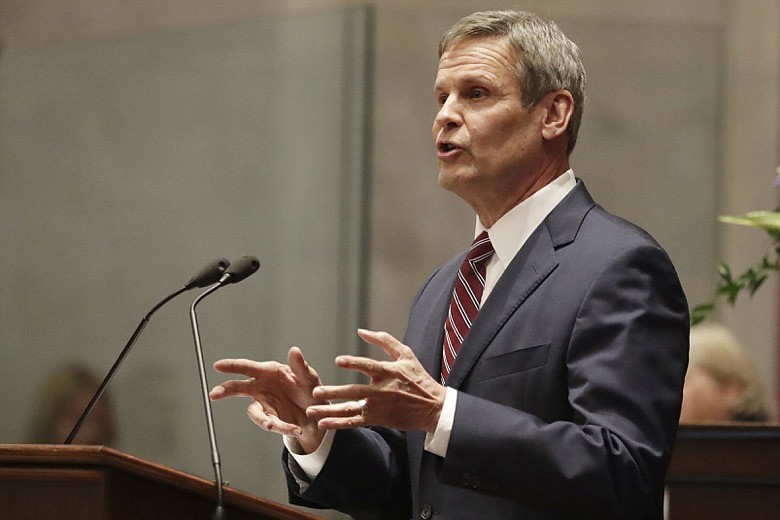For answers to frequently asked questions about coronavirus, click here.
-
UPDATE: As the number of coronavirus cases in Tennessee escalates, Gov. Bill Lee on Friday urged religious institutions, conference organizers and others to avoid large gatherings and consider alternatives by using livestreams, pre-recorded messages and other electronic means.
The governor also announced the Tennessee Capitol is now "closed to tours and visitors through March 31, 2020."
___
NASHVILLE - Tennessee Gov. Bill Lee declared a state of emergency Thursday to accelerate the state's response to the coronavirus outbreak as the total number of presumed or confirmed COVID-19-infected residents doubled over the course of 24 hours to 18 people.
"We clearly believe there will be more cases," the governor told reporters at a state Capitol news conference announcing the action.
Also, the National Rifle Association said it was canceling its upcoming annual meeting, which was planned for Nashville.
The governor's Executive Order 14 gives him flexibility to free up additional funds, expand testing sites and crack down on would-be price gougers on medical and emergency supplies.
It came after the governor said earlier this week he didn't think an emergency declaration was necessary. But Lee said the situation changed with a cluster of COVID-19 cases.
"As we continue to learn more, our response will continue to evolve," Lee said.
The governor also said, "I'm encouraging the public to avoid unnecessary visits to nursing homes."
Half of the state's COVID-19 cases are in Williamson County, the Republican governor's home county.
No cases have been reported in Hamilton County or nearby Southeast Tennessee counties. And no deaths have been reported anywhere in Tennessee. In 80% of cases, the infection causes mild symptoms, experts have said.
The state is updating its count of infected people once a day. Earlier in the week, the Lee administration quickly dropped its practice of not identifying the counties where cases were occurring amid widespread criticism.
For the first time, state Health Commissioner Lisa Piercey revealed two people as of Wednesday had been hospitalized because of the virus. That information only came in response to a specific question posed by a reporter.
Piercey said the state has some 500 COVID-19 tests and anticipates getting more as production is ramped up nationally. The tests determine whether people have been exposed to the coronavirus. Meanwhile, Piercey, a physician, said more commercial tests are also becoming available.
Wendy Long, executive director of the Tennessee Hospital Association, said hospitals plan to open "non-urgent sites" for people referred by their doctors for testing. Hospitals are worried their emergency rooms could come under siege from people seeking testing. They are supposed to be referred for testing by their physicians.
Lee has been supported by GOP lawmakers, but legislative Democrats have blasted the governor's response and the administration's withholding of information from the public.
The governor's move comes after the World Health Organization declared earlier this week that COVID-19 had become a global pandemic. President Donald Trump on Wednesday announced new travel restrictions on Europeans coming into the U.S.
What the governor's Executive Order 14 does:
- Permits health care professionals licensed in other states to provide health care services in Tennessee related to COVID-19.
- Allows pharmacists to dispense an extra 30-day supply of maintenance prescriptions as needed in response to COVID-19.
- Allows health care professionals to provide localized treatment to patients in temporary residences.
- Expands testing sites for COVID-19.
- Allows the construction of temporary health care structures in response to COVID-19.
- Implements price gouging protections on medical and emergency supplies.
- Suspends restrictions on vehicles transporting emergency supplies to areas affected by COVID-19.
- Permits the waiver of certain regulations on childcare centers as needed to respond to the effect of COVID-19.
- Authorizes TennCare policy changes to ensure that covered individuals receive medically necessary services without disruption.
- Directs coordination with health insurance plans to improve access to screening, testing and treatment for COVID-19.
Contact Andy Sher at asher@timesfreepress.com or 615-255-0550. Follow him on Twitter @AndySher1.
